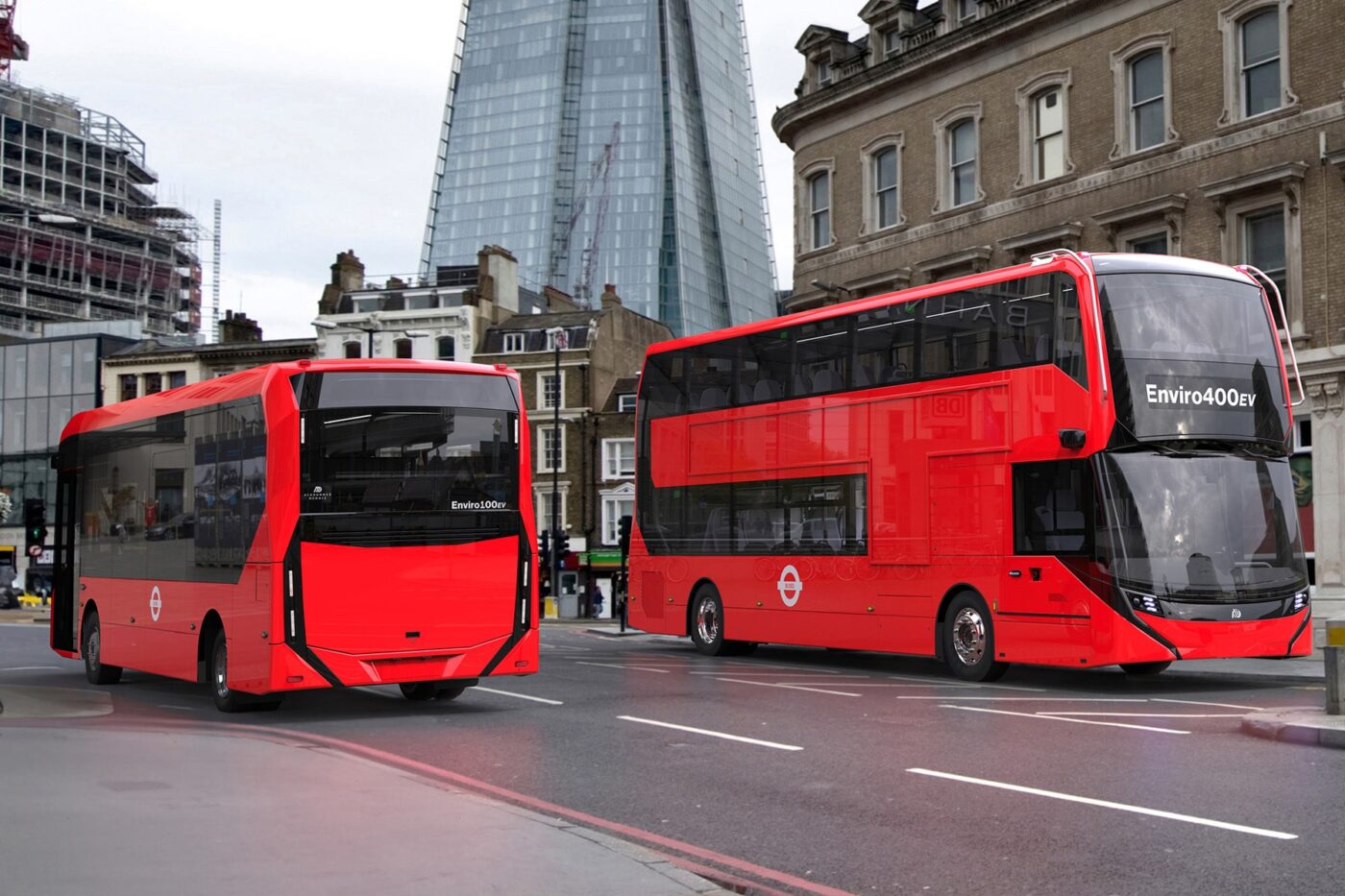UK remains leading market for electric buses in Europe – but electric truck sales are declining
The Society of Motor Manufacturers and Traders (SMMT) has published the new figures. According to the association, the 1,570 new battery and fuel cell buses represent an increase of 35.5 per cent compared to 2023. The statistics include the registration of mini, solo and double-decker buses. What is surprising is that electric buses fell behind the British market as a whole, which experienced strong growth of 70 per cent to 8,390 buses across all drive systems in 2024 – the best annual result since 2008, according to the SMMT.
The proportion of electric buses in the UK declined in light of this development. It fell to 18.7 per cent. Excluding minibuses (up to 6 tonnes and 17 seats), emission-free single and double-decker buses still accounted for 43.9% of registrations, which is almost on par with the previous year (2023: 45.1%). This is also due to a consistent funding policy, as operators in the country continue to receive financial support from the ZEBRA programme to purchase electric buses.
With these figures, the UK remains Europe’s largest market for zero-emission buses. By comparison, the 1,570 new zero-emission buses in the UK are offset by only 713 new units (only BEVs from 3.5 tonnes) in Germany, according to the Federal Motor Transport Authority. The strongest EU market in 2024 was Italy, with 1,026 new electric buses, which corresponds to a huge increase of 162 per cent compared to 2023. The electric share of all bus registrations in Italy thus grew to 21 per cent.
The European Automobile Manufacturers’ Association (ACEA) also reported on the discrepancy in its comparison of European countries. However, the ACEA’s absolute figures differ because the breakdown is different: for example, the ACEA does not differentiate between battery-electric and plug-in hybrid commercial vehicles.
If we zoom in on the electric truck market in the UK, the sentiment of growth fades. The country recorded only 217 new registrations of zero-emission trucks (battery or fuel cell drive) in 2024, which, according to the SMMT, corresponds to a decline of 7.3 per cent compared to 2023. The association defines trucks from 6 tonnes upwards. The overall market also fell by 2.7 per cent after three years of solid growth. However, 2023 was also a particularly strong year, meaning the 44,988 new registrations last year are still the second-best annual result since 2019.
In this context, the proportion of new registrations accounted for by electric vehicles barely moved and remains at a very low level (0.5 per cent). That is even though the UK has banned the sale of new combustion-powered trucks of up to 26 tonnes in 2035. Mike Hawes, Chief Executive of the SMMT, comments: “A slight decline in truck fleet renewal reflects a sector that is normalising after strong post-Covid growth. With most of the market nearly one full investment cycle away from the 2035 end of sale, however, urgent action is needed to address stagnant zero emission uptake.” Manufacturers have delivered the products – now the operators need to be convinced to invest. Hawes thus callis for “meaningful fiscal support and infrastructure rollout.”
The UK’s weak electric truck ramp-up also stands out in a European comparison. The ACEA registered a downturn of -3.5 per cent in heavy-duty electric trucks over 16 tonnes alone (BEV + PHEV) in the UK (from 288 in 2023 to 278 units in 2024), while this market grew by 71 per cent in Germany (from 606 to 1,035 units).
smmt.co.uk (buses), smmt.co.uk (trucks)





0 Comments